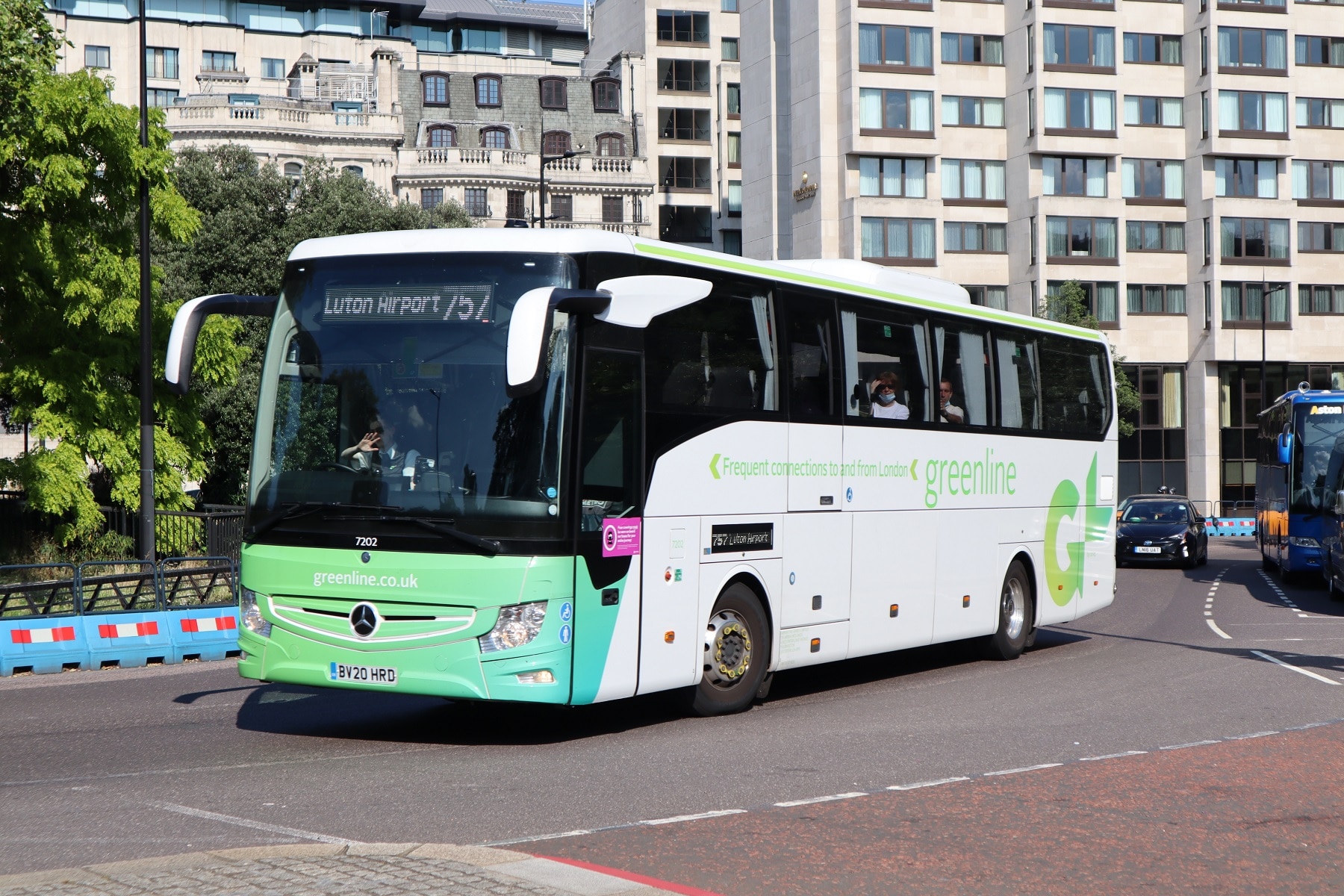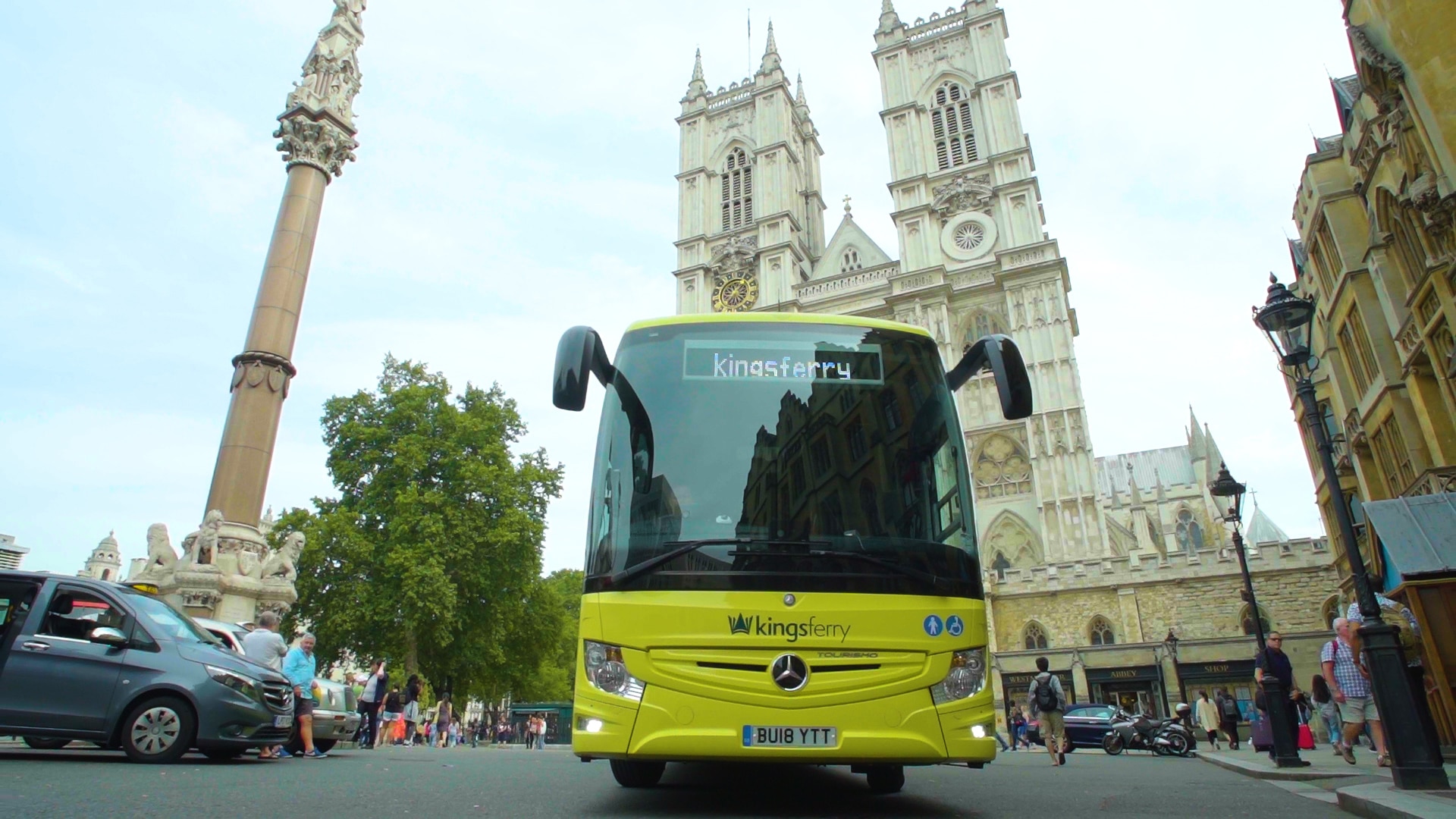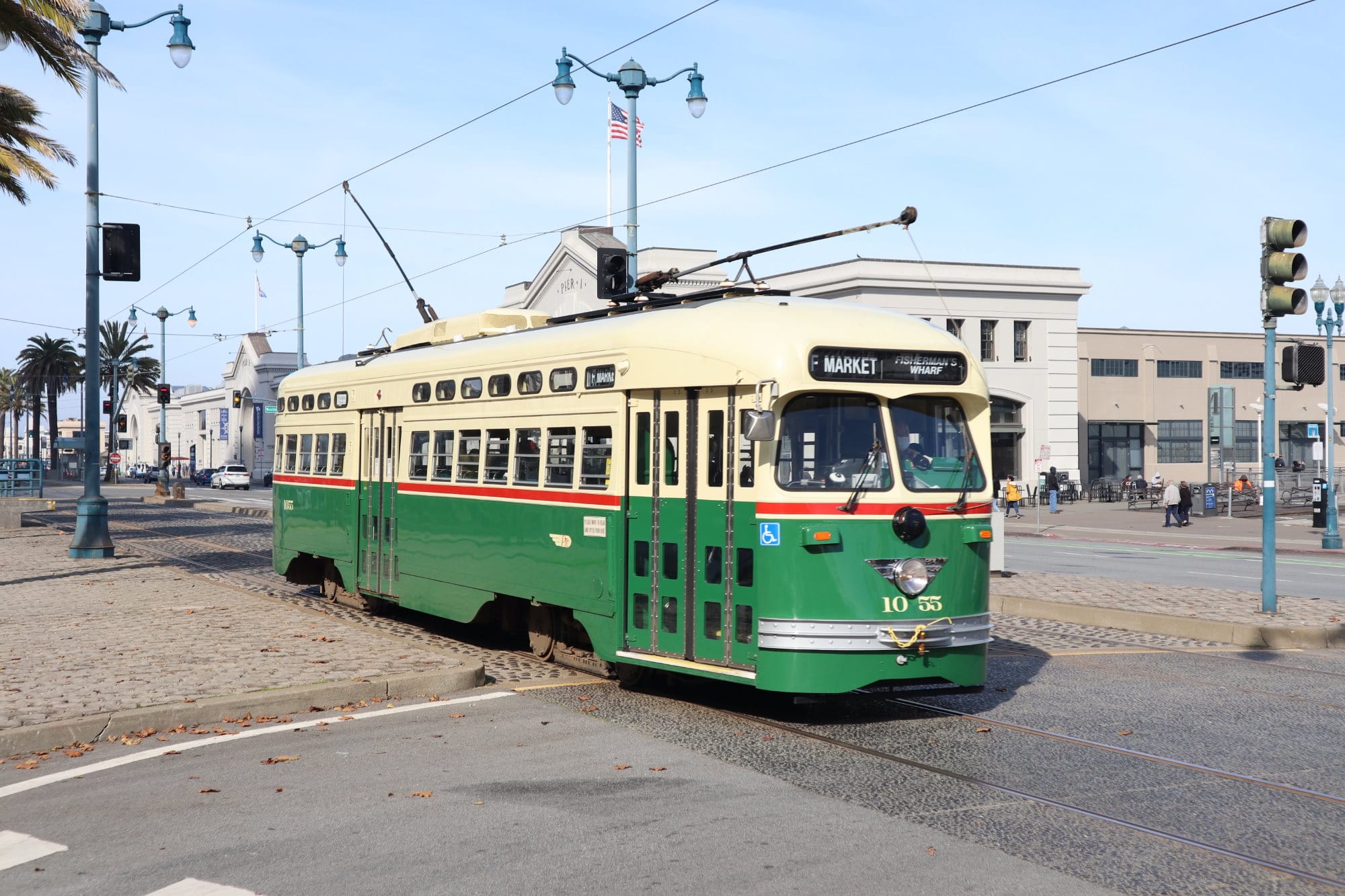The impact of COVID-19 on the London commuter coach market has been exposed by research that compares service provision on the first working day of 2022 to the position in 2019.
Examination was undertaken by UK Coach Operators Association Managing Director Peter Bradley following National Express Transport Solutions (NETS)-owned The Kings Ferry’s decision to withdraw its network of such routes before Christmas. On the final operating day of 24 December 2021, 11 timetabled departures in each direction were run by The Kings Ferry, down from 50 in 2019.
As of 4 January, operators still involved in the London commuter coach network provided a combined total of just 15 departures in each direction. That represents 16% of the 94 round trips in operation during 2019 and a significant drop from the 36 journeys in each direction at the end of November 2021.
All is not lost from London commuter coach market
Still active in the London commuter market are Arriva, Brookline Coaches, Centaur, Marshalls Coaches and Redwing Coaches. They provide one, one, seven, one and five round trips respectively. Arriva and Marshalls run in from Bedfordshire, with other services built around demand from Kent.
In addition to the loss of The Kings Ferry’s network, Arriva withdrew heavily from the London commuter coach market during December 2021. It retains an involvement through one daily return trip on route 755 from Leagrave. On its core service 757 to Luton Airport, one round trip is additionally extended to serve Leagrave, although it has not been included in Mr Bradley’s figures.
As recently as 2019, Arriva provided an all-day service of 15 departures in each direction between Hemel Hempstead and London. In withdrawing the last of that provision from 4 December 2021, the group stated that service 758 “was already experiencing a decline in passenger numbers” prior to the pandemic. It described the final timetable as “not sustainable” in view of continuing low usage volumes, despite having introduced additional journeys since September 2020.
Good customer feedback gives hope for future
Recent decline in the London commuter coach market has been put down to permanent changes to working patterns brought about by the pandemic. As recently as 2020, fleet investment had been made to support the provision offered at that time, although one operator that remains active in the field suggests that passenger numbers had been stagnant for some time before COVID-19 hit.
When announcing an end to The Kings Ferry’s commuter operation in December 2021, NETS Managing Director – South East Region Ian Fraser said that while the business did not rule out examining a reintroduction of provision should travel patterns change, demand had reduced to such an extent that that the services were no longer commercially viable “and [are] unlikely to become so in the near future.” All options had been exhausted in attempting to make those routes work, NETS added.
However, in examining the long-term provision of commuter coaches, Mr Bradley says that while they may appear to have a time penalty over comparable train services, customer feedback had previously shown that where users that live and/or work near coach stops but not railway stations, such an impact was greatly reduced or even mitigated entirely. However, he points out that increased congestion has slowly eaten away at that advantage in many cases.
Commuter coach is viable with infill work in London, says operator
One operator still serving the London commuter market is Marshalls Coaches of Leighton Buzzard. It currently runs one round trip into the capital each working day.

That is down from three inward and four outward trips before COVID-19. Partner Dean Marshall explains that the surviving route remains viable because it is tied to work within London between the peaks.
Currently between 20 and 25 passengers use the service in each direction. While Mr Marshall is hopeful that more will return as restrictions and guidance are relaxed, he accepts that changing work patterns have already had a permanent effect
“We are always optimistic that things will get better, but realistically we can’t be sure that they will,” he continues.
Five-day usage was declining pre-pandemic
Marshalls has already noticed that customers’ use of its commuter service is now more ad-hoc, although the first signs of that had been seen pre-pandemic. At that point it had introduced a 10-trip package that was well received, but further adaptation of the commercial offer may be necessary. Ticket bundles are being explored, while the development of app-based payment that is primarily focused on Marshalls’ home-to-school services will also be rolled out to its commuter route.
In the longer-term, Mr Marshall is hopeful that the convenience factor of coaches for some customers highlighted by Mr Bradley will remain attractive. The price advantage is also important. While the train can be faster point-to-point, when the cost of an annual ticket on each mode is compared, coach is 50% cheaper; high car parking charges at rail stations is a further factor for some travellers. That is a major benefit and will remain so, he observes.
While Mr Marshall is realistic about the potential for commuter coach services in the short-term, he adds that app functionality can be ported across from Marshalls’ home-to-school services easily and cheaply. Pushing forward with new technology and other ideas to make the offering more attractive remains imperative despite current headwinds, he concludes.



























